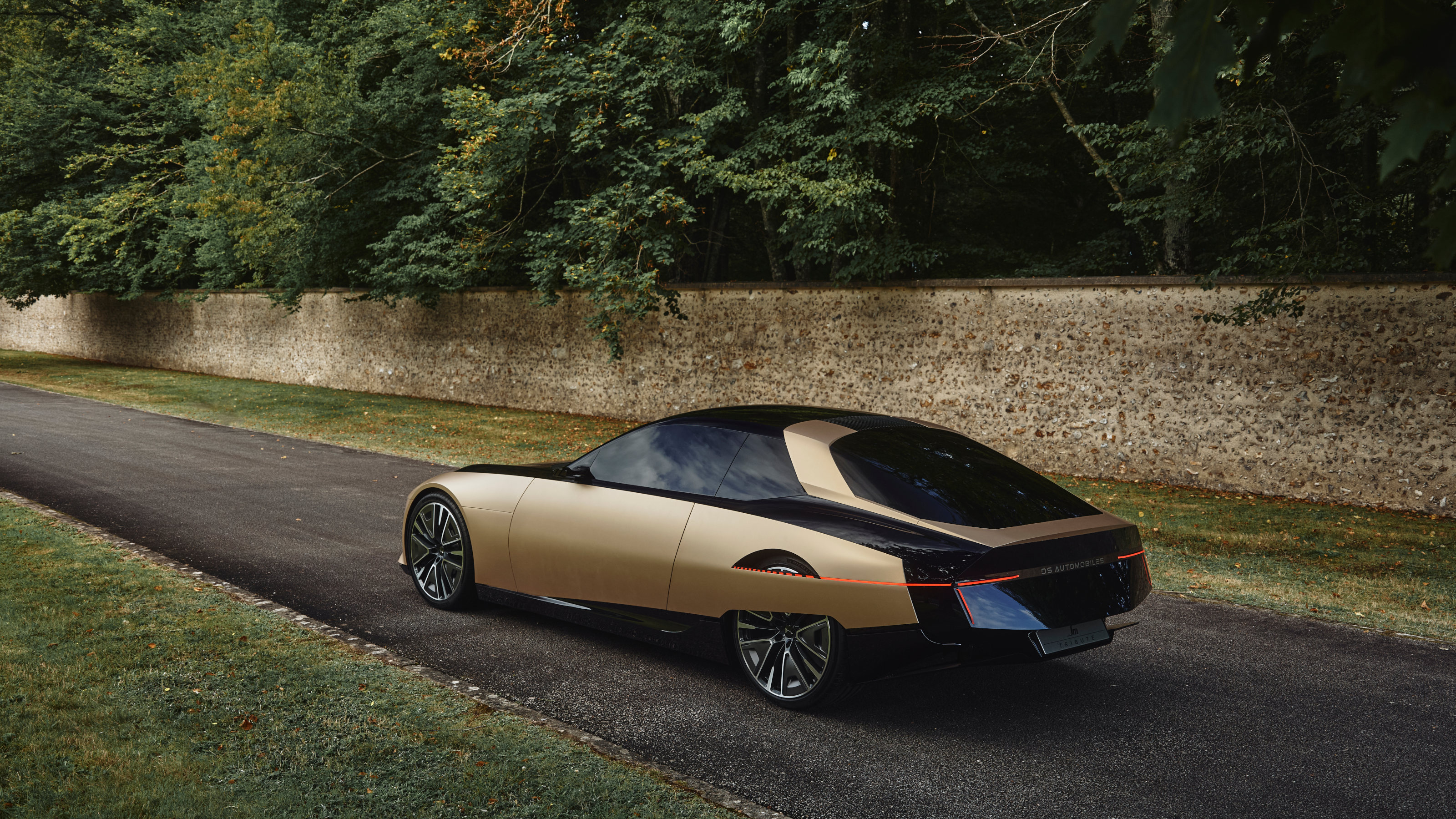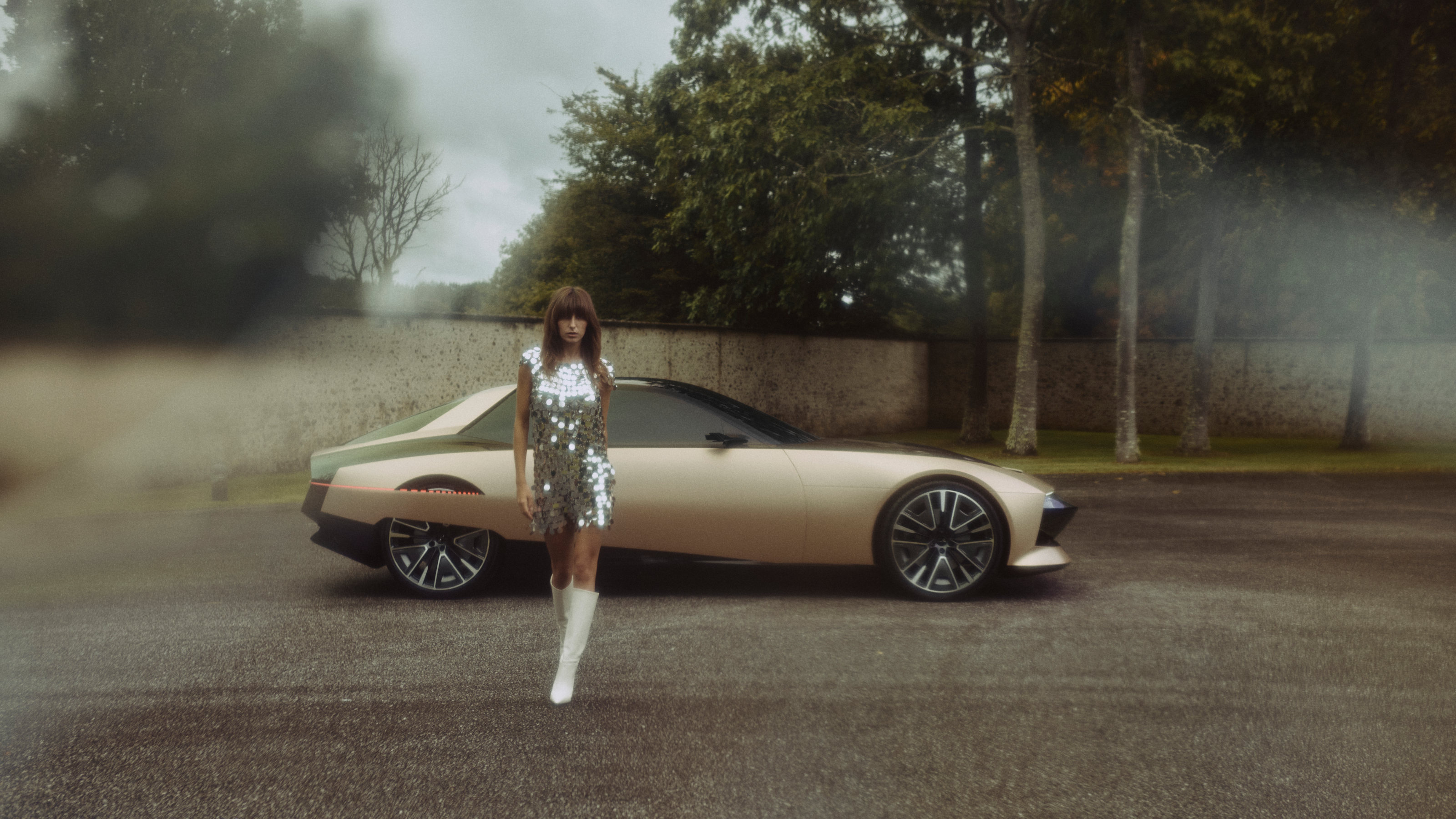
A decade into the existence of DS Automobiles as a standalone brand, spun off on the promise of reviving the design delights of Citroën’s golden era, the company has created a dramatic homage to the past as a way of pointing to the future.
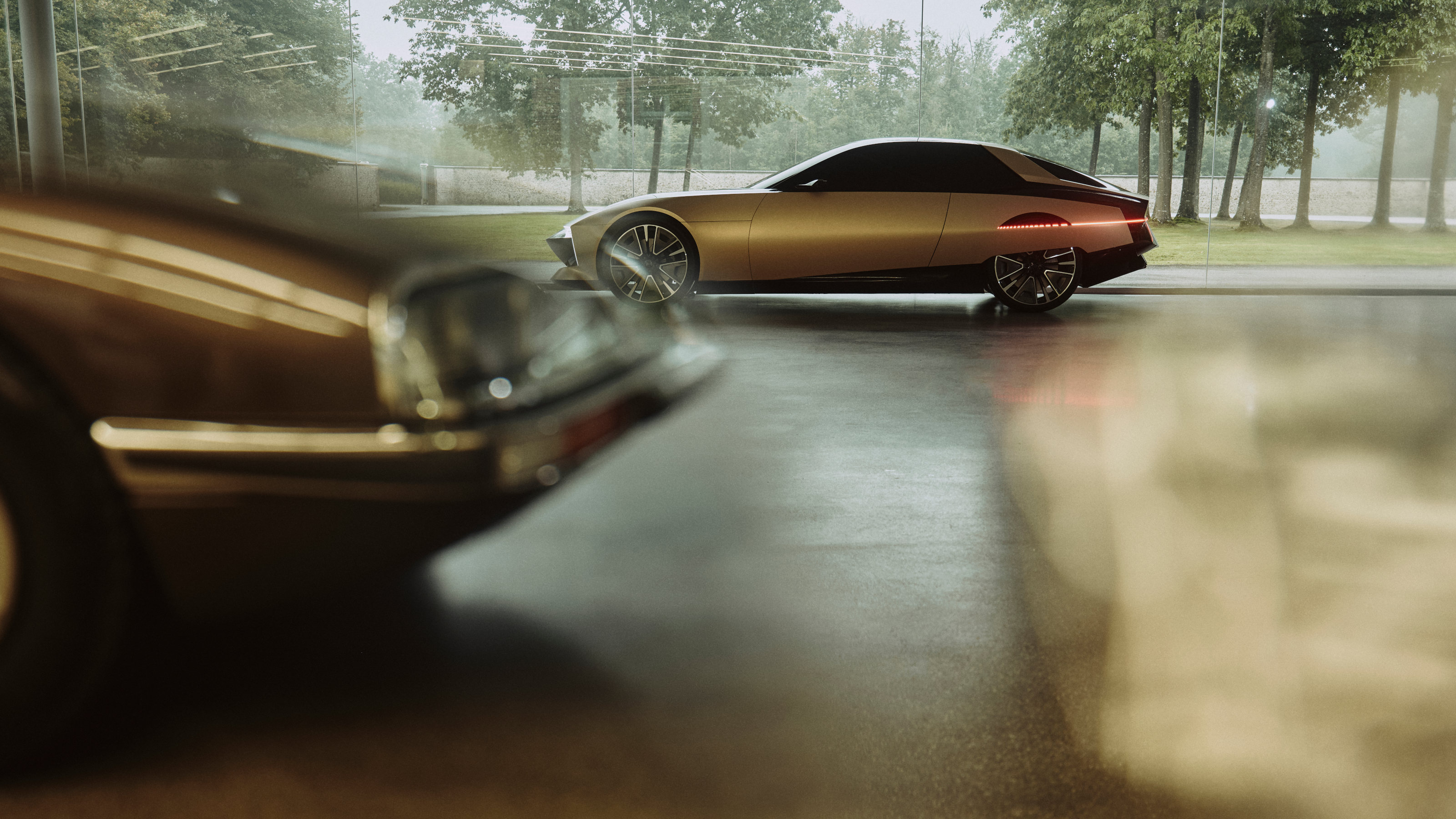
Quite a few people – this publication included – spent the first chunk of DS’s life urging it to be a little bit more daring in its design approach. Let’s hope the SM Tribute is the shape of things to come. By tackling one of the most iconic designs in the Citroën portfolio, the late Robert Opron’s magnificent sports car iteration of the iconic DS, the Citroën SM, the company has made a strong and elegant statement.
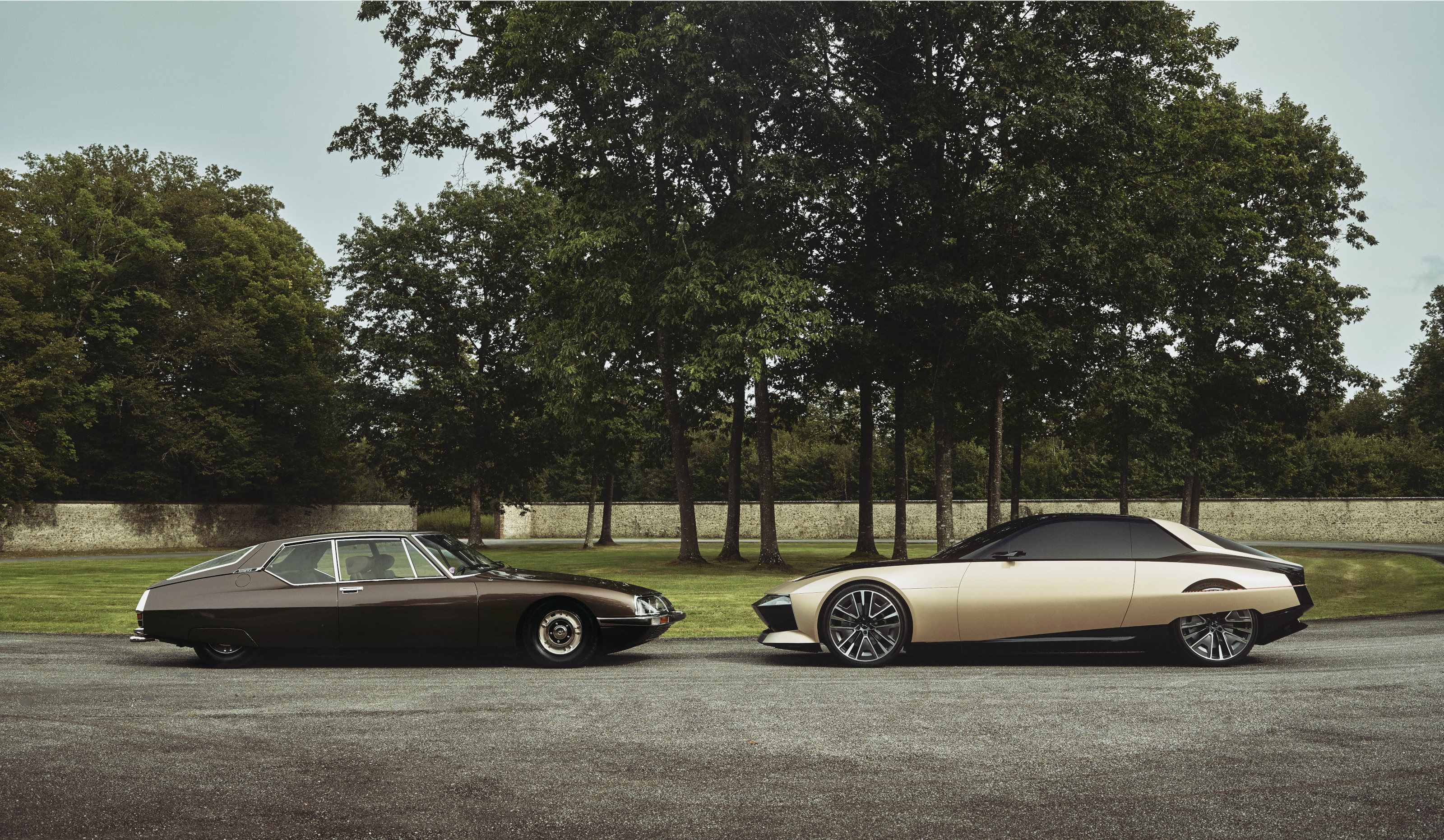
This isn’t just an exercise in restomod engineering, in the manner of the recent Renault R17, but an attempt to imagine how an SM would look today ‘if it had continued to develop over the past five decades’. Opron’s vision resulted in a large, space-age automobile, with vast bonnet, faired-in rear wheels and countless technological innovations. It took the quirky technical brilliance of the Citroën DS and turned into the first super-coupé, a grand tourer for the Euro-sophisticate.
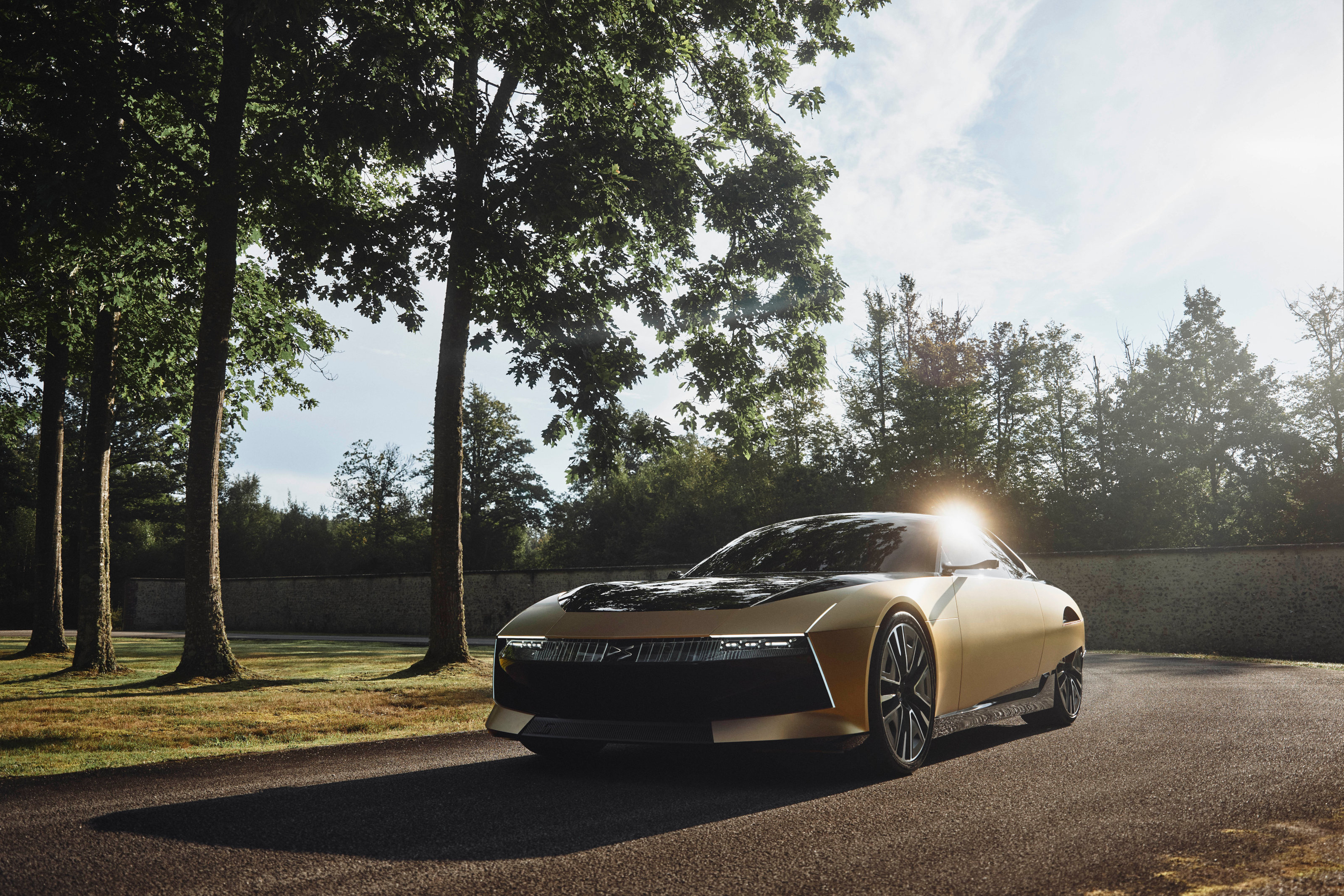
Under the bonnet was a Maserati V6, a result of the two companies entering into an ill-starred joint venture in the cash-strapped 1970s. Citroën actually bought Maserati in 1968, but the revolutionary potential of this Franco-Italian marriage was only evident in this one car (and perhaps the Maserati Quattroporte II, which paired the SM platform with a boxy Gandini four-door body – just 12 were made).
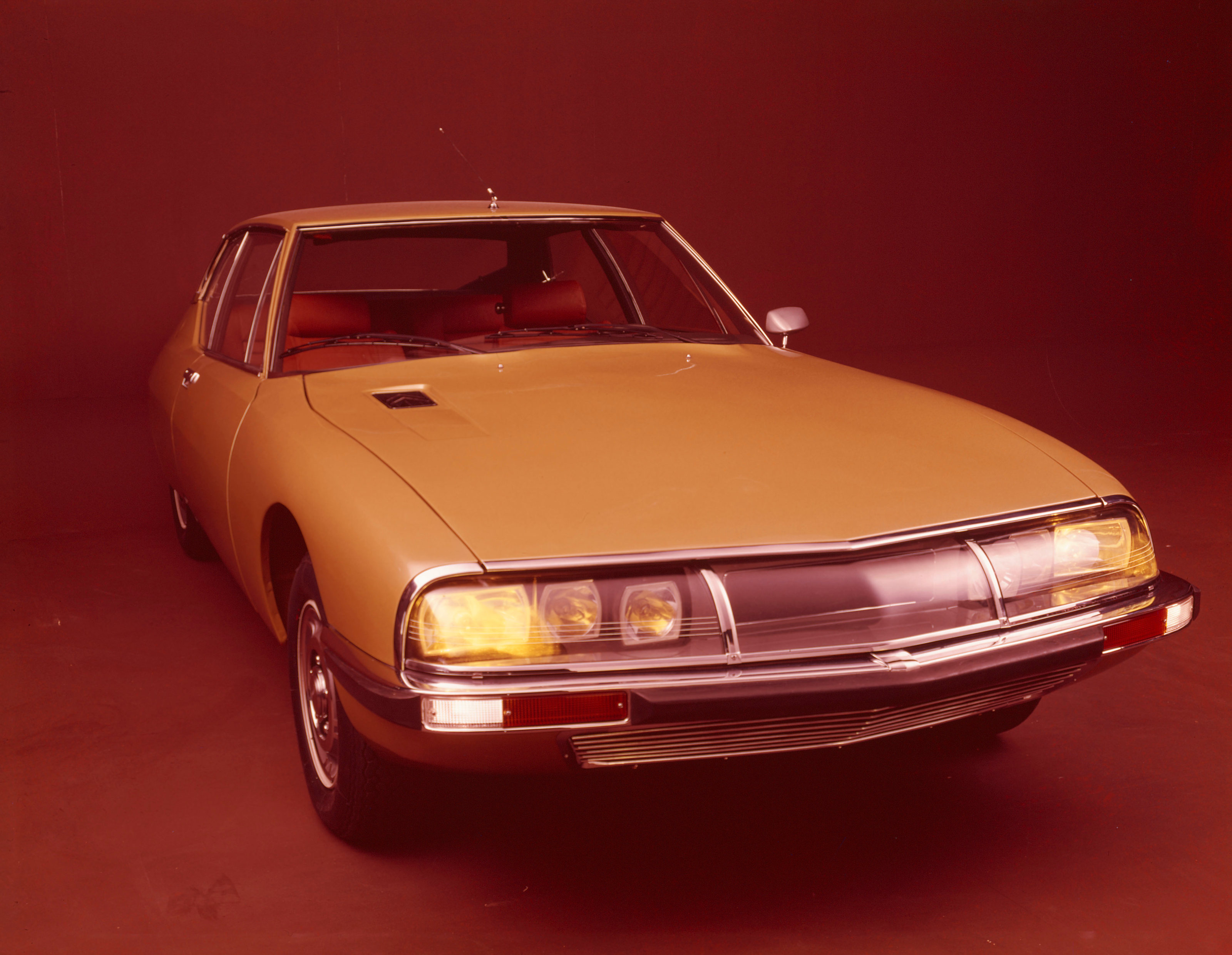
This mix of Italian exotica and French design perfection has made the SM a cult object. Alongside its far more popular and successful DS sibling, it is one of the cars that many feel should be the start point for a design-led, Citroën-inspired brand. And now here it is. The SM Tribute.
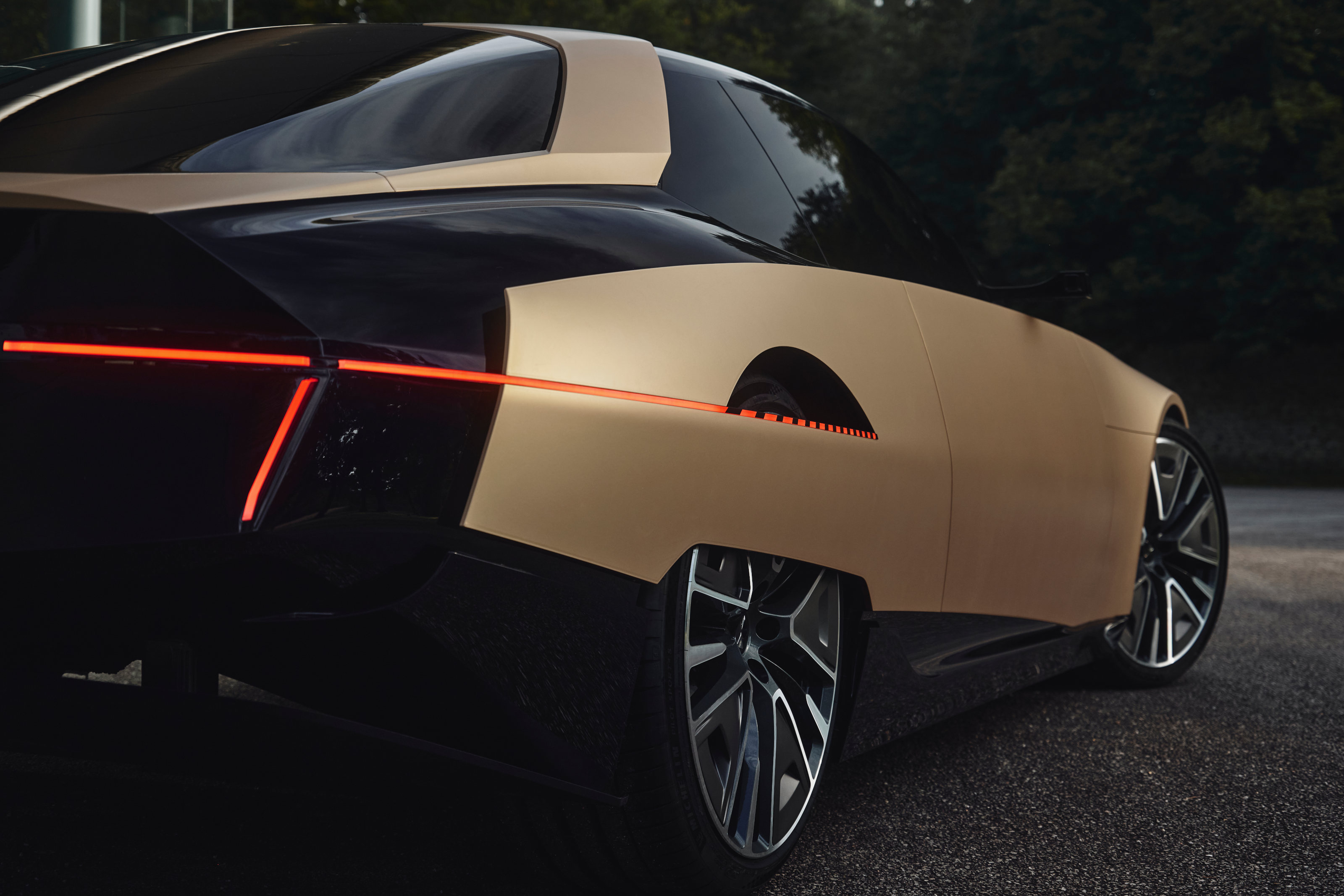
Actually, the car you see here has its origins in a styling exercise back in spring 2020, when the DS Design Studio in Paris was casting around for ways to reinterpret the SM. ‘We are working on the genes of our iconic models to fuel our research into the shape of future models that will come along at the end of the decade,’ says Thierry Metroz, DS Automobiles’ design director.
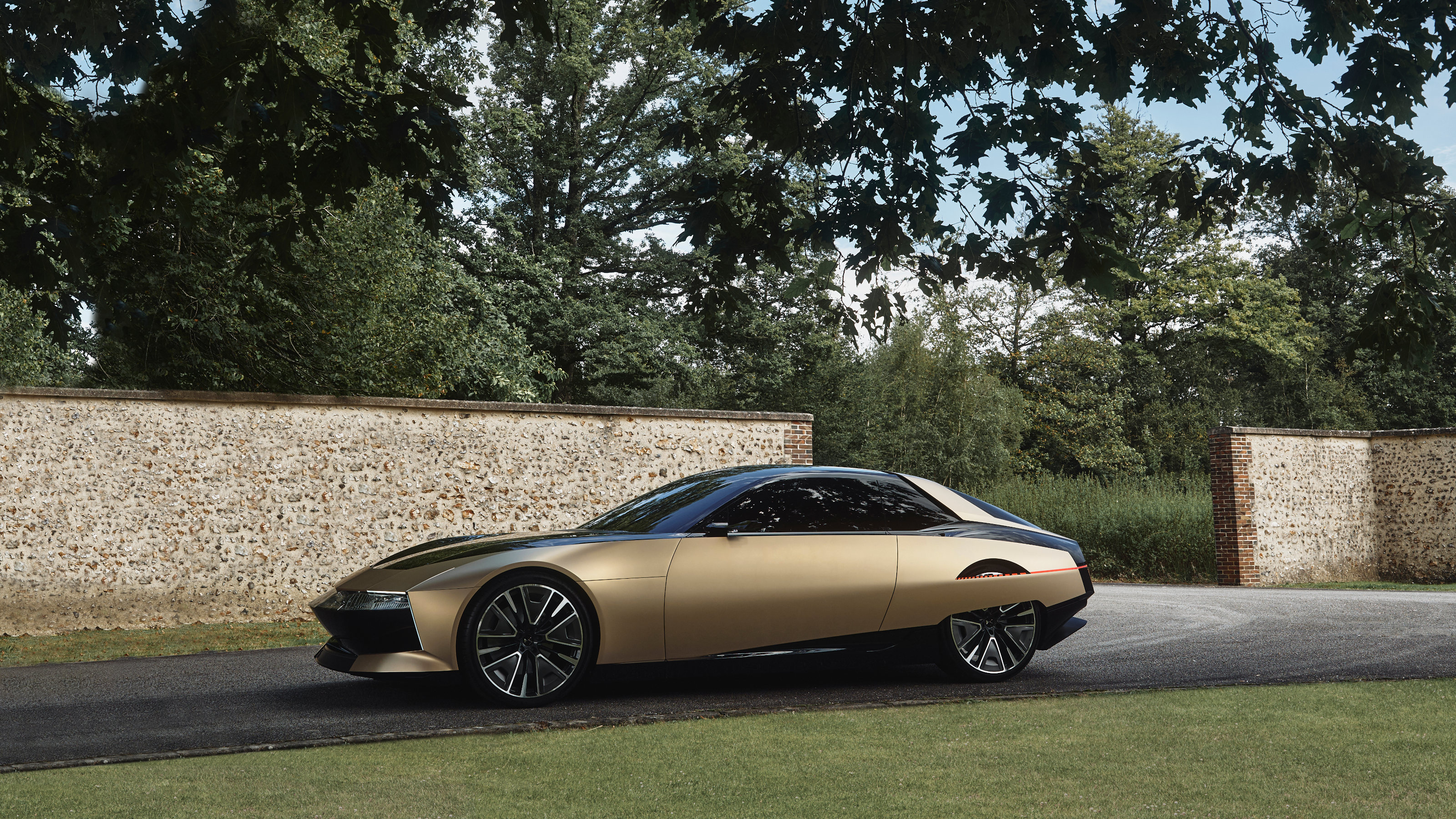
DS Automobiles’ press release pointedly doesn’t use the word ‘Citroën’ at all, referring only to the SM as a standalone machine. It also neglects to bring up the spectre of Maserati, even though both brands have now been reunited under the Stellantis umbrella. It’s not massively surprising to find DS Automobiles going all-out with the full-on retro imagery, with a Paco Rabanne-style dress, lashings of brown interior trim and blurry focused presentation, in these images. Car culture is as cyclical as all other forms of visual language; it’s usually purely practical reasons like cost and legislation that stop old beloved designs from being churned out again and again.
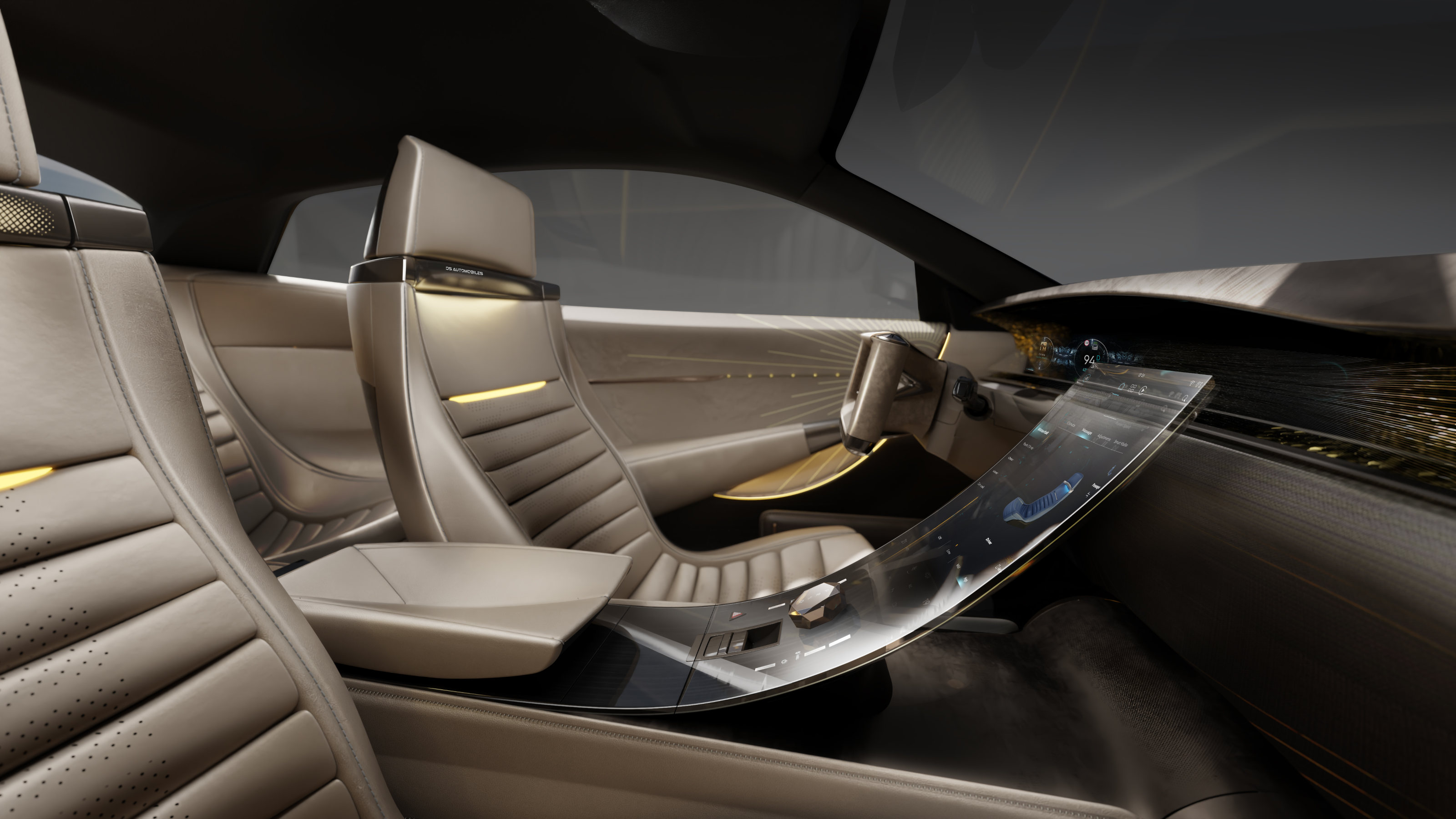
There remains something very desirable about the SM Tribute, which made its public debut at the Chantilly Arts & Elegance car show this week, ostensibly to celebrate ten years of ‘art and elegance’ under the DS Automobiles name. As Citroën doubles down on becoming a design-led, low-cost volume brand and DS Automobiles reiterates its modern French luxury focus, this is precisely the kind of car that could give the latter a boost.
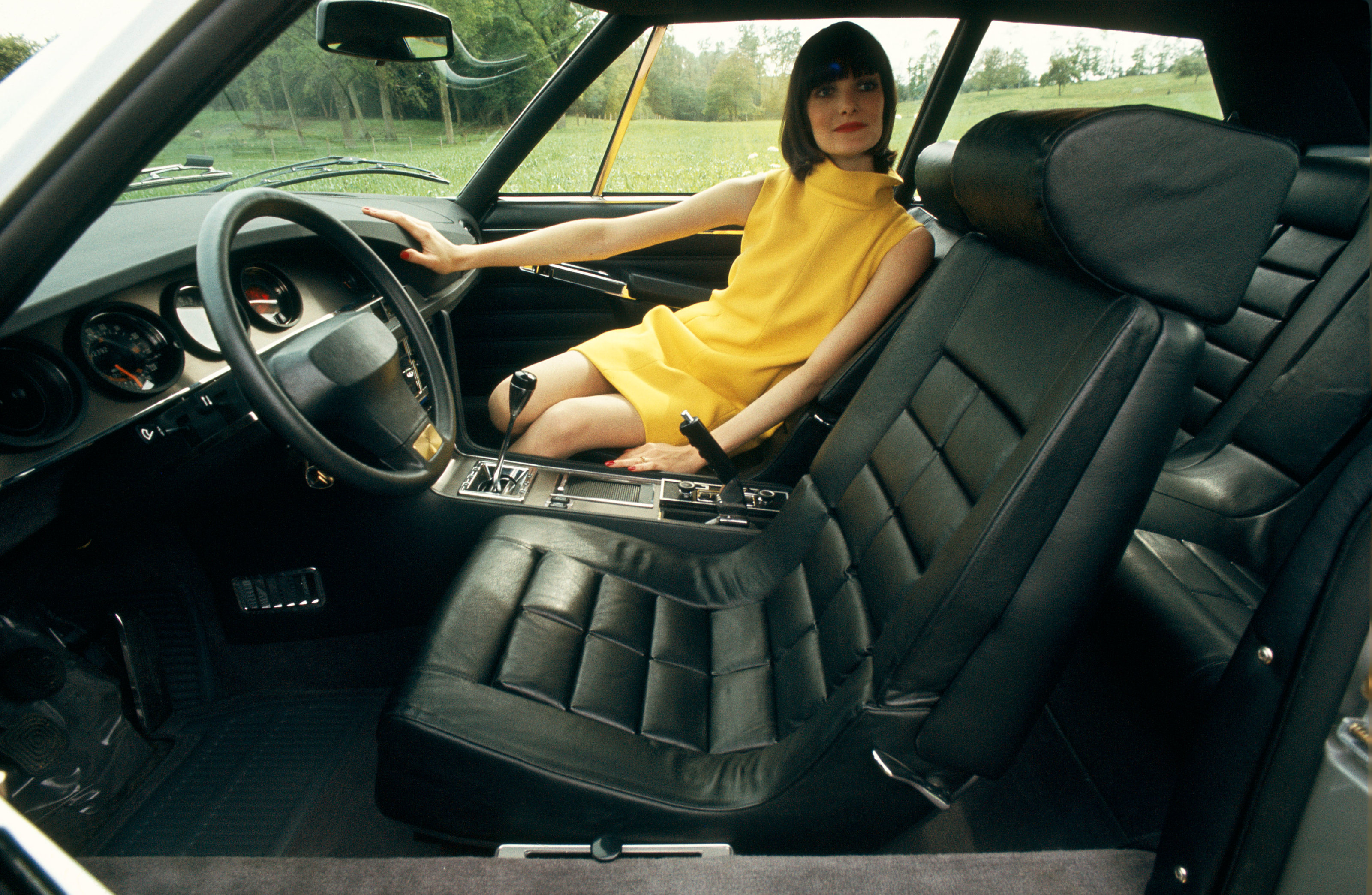
Frédéric Soubirou, DS Automobiles’ head of exterior design, explains how the team delved into the history of the SM. ‘We were inspired by studying several SM models, including prototypes and the two presidential SMs. They had a striking trait, like a signature. They gave the impression of flying on the road, they were very aerial.’ Placed side by side with the original you can still see a real delicacy to the Opron design, a quality that’s near impossible to capture in the modern era. The shift in wheel sizes over the past half century is also immediately apparent.
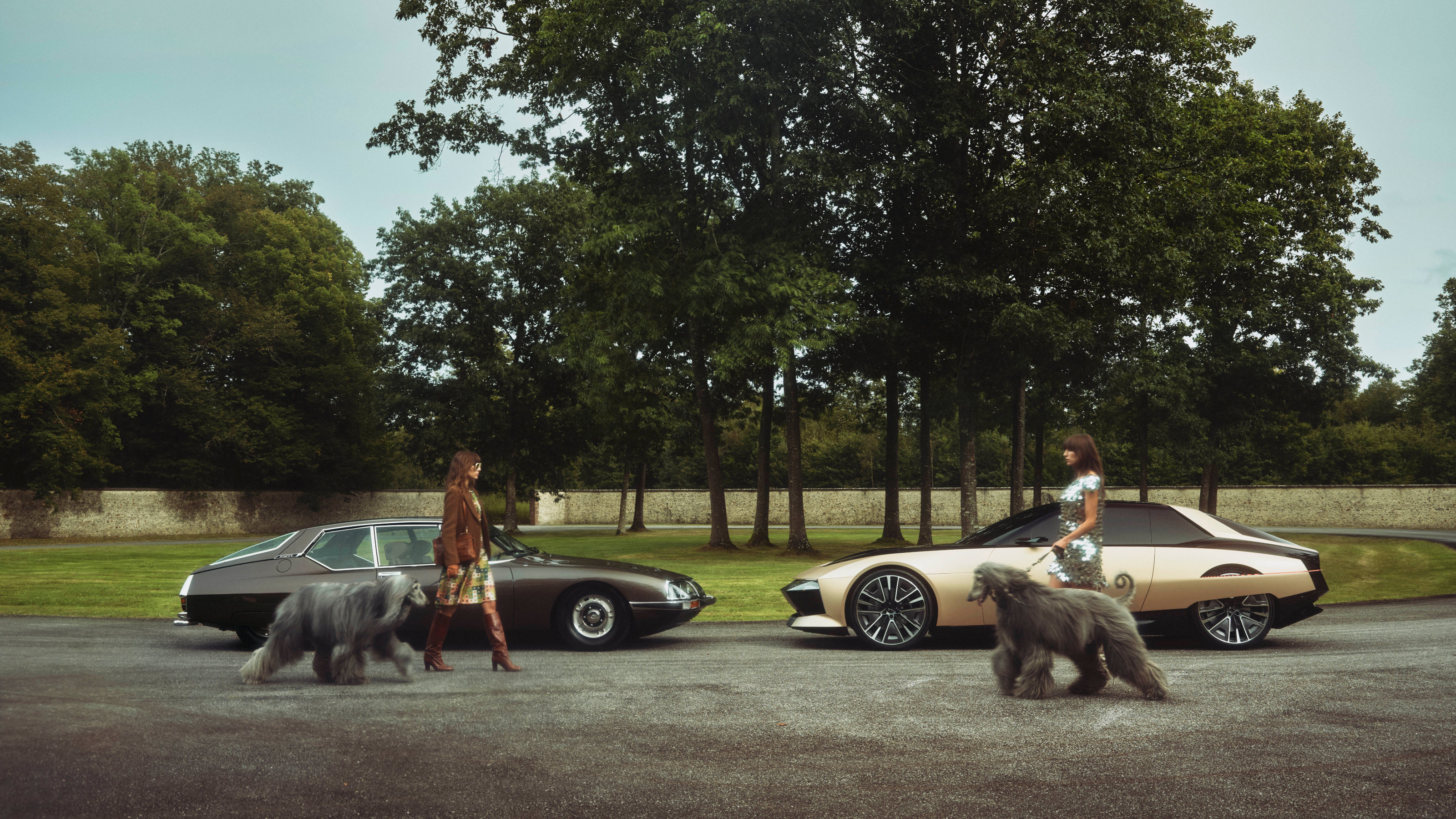
Although the new design ticks a few obvious boxes – part-faired-in rear wheels, the tapering bodywork and sweeping dashboard – other elements come from the application of recent DS Automobiles signature materials and finishes. These include the bi-tone paintwork, a freshly fashionable look that harks all the way back to the 1930s, and a 3D screen across the front end of the car that incorporates the modern LED lights – a nod to the original SM’s glass front.
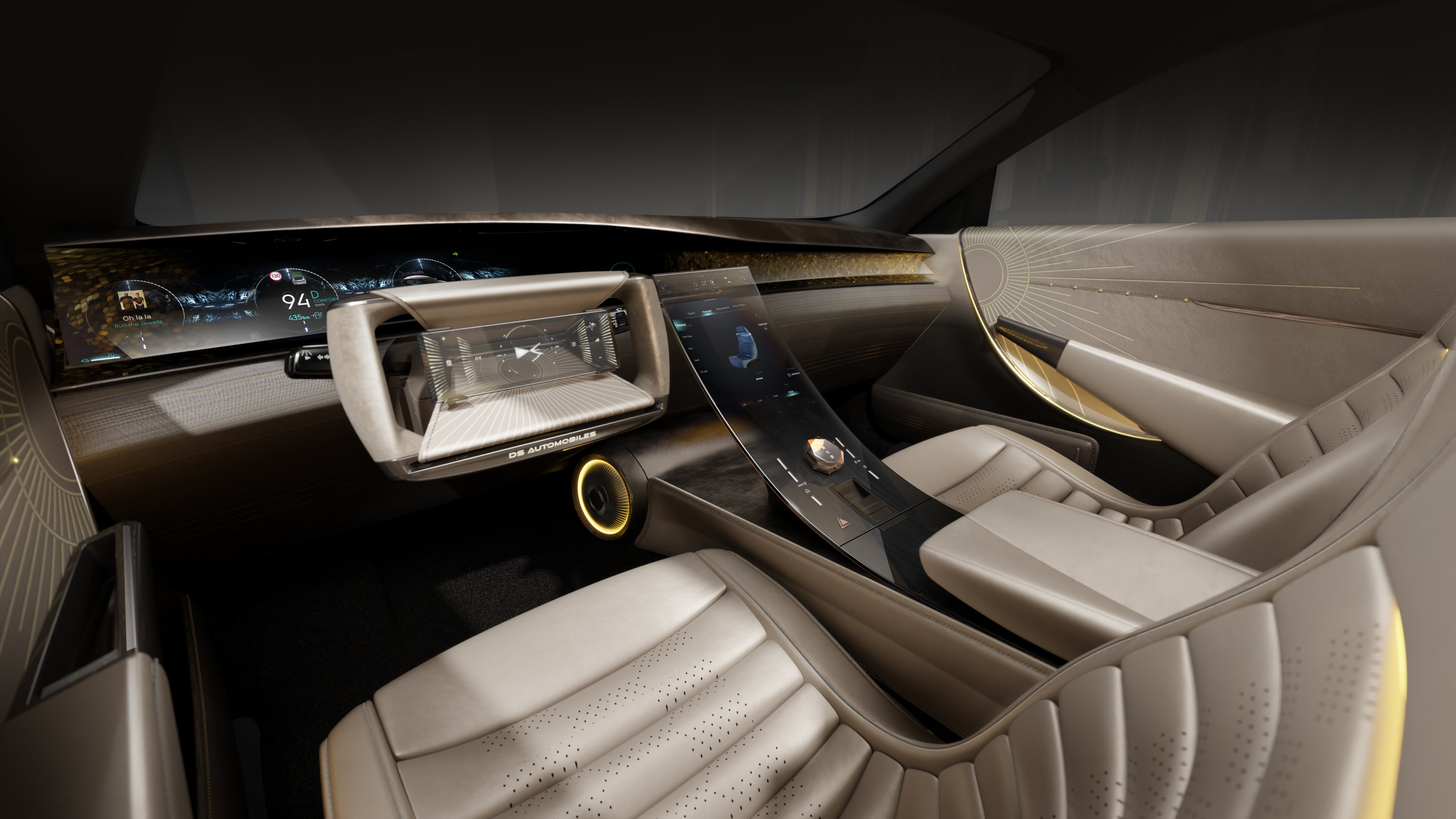
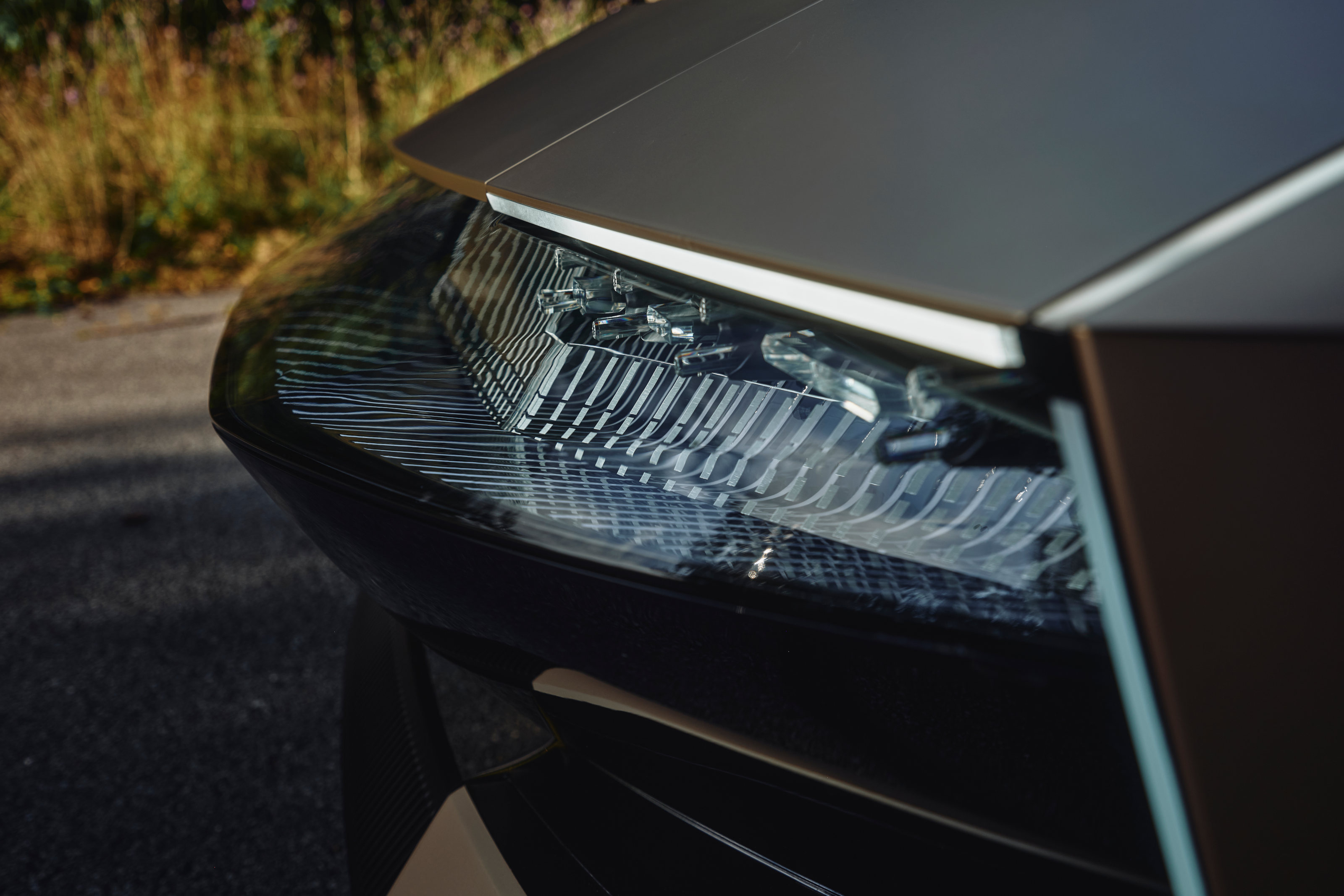
Inside, the dashboard display is projected, with a yoke-style driving control and seats that references the defiantly 1970s style of Opron’s SM. Laser-engraved leather is paired with Alcantara in the interior. ‘It's not just a portrayal of the SM,’ Metroz continues. ‘We have respected the original design through its spirit and details. We have done a transcript and reinterpretation of the SM. But as it is not our habit to disconnect from our other work; we have included a lot of details about what DS Automobiles models and our future projects are.’
We can’t be the only ones hoping that this car – or one very like it – emerges from DS Automobiles at some point in the near future.
